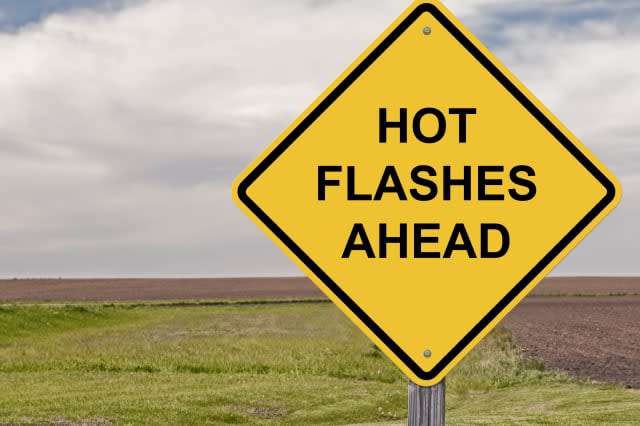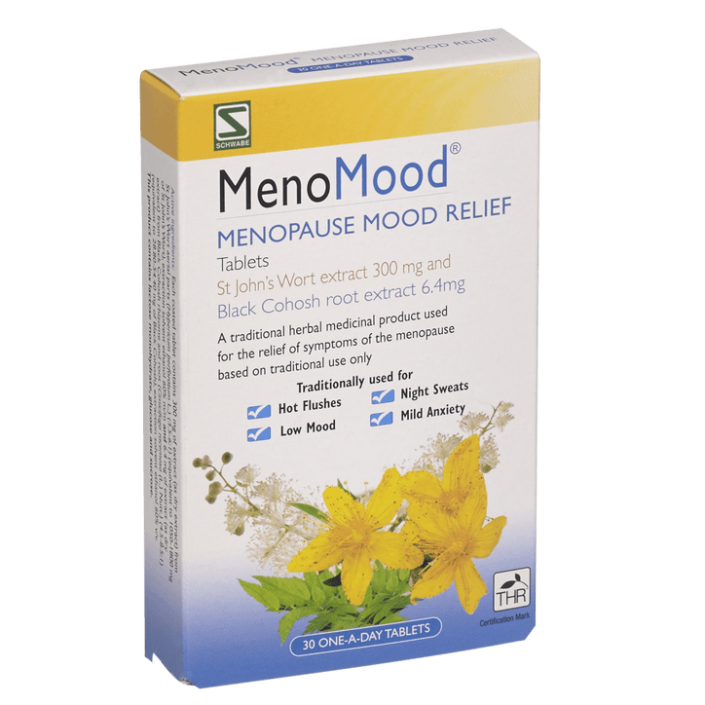Coping with menopausal hot flushes


If you are going through the menopause, there's a good chance you're only too familiar with hot flushes and night sweats. If you're feeling the heat, here are a few things you can do...
See also: How the menopause affects your weight
Avoid your triggers
Spicy food, heat, smoking, alcohol, hot drinks and stress can all trigger a hot flush. Keep track of your symptoms and their severity and make a note of anything that may have caused them. Everyone is different - and identifying your triggers is the first step to avoiding them.
Breathe deeply
When you feel a hot flush coming on, it's natural to feel anxious or frustrated, but stress only makes the problem worse. Take a few slow, deep breaths. Spending just 10-15 minutes practising deep breathing twice a day can help to manage stress.
Keep cool
If night sweats are a problem, use cotton bedlinen and cotton night clothes, and consider sleeping with the window open and a fan on.
Stay hydrated
As you lose fluid when you sweat, it's even more important to stay well hydrated. Sip chilled water throughout the day, and have some ice on hand if you need to counter the feelings of the hot flush.
Exercise
Studies suggest that regular exercise can help to reduce hot flushes, but make sure not to exercise late in the day, as this can affect your ability to sleep. Weight-bearing exercises are a good choice, as they will also help reduce your risk of osteoporosis.
Wear layers
Wear thin layers of clothing. That way you can remove some layers if you get too hot throughout the day. Avoid roll-neck jumpers and wool and synthetics, and choose lose-fitting clothing made from cotton, rayon or linen.
Acupuncture
Some women find that acupuncture reduces the intensity of hot flashes, and there have been some small-scale studies that have produced promising results.
Supplements
Soy may help to reduce the intensity of hot flushes, and some women find that adding tofu and soy milk to their diet helps. The herb black cohosh has had mixed results in studies, and experts have expressed concern over its effect on the liver.
There have also been small studies indicating that red clover, pine bark supplement, folic acid, and evening primrose oil may help. Tell your doctor before trying any kind of dietary supplement as they may have side effects (for example liver damage from black cohosh) or mix badly with prescription medicines (red clover is unsuitable for women taking anticoagulants). In addition, soy and red clover contain plant oestrogens so may be unsafe if you've had breast cancer.
Treatment options
Many women do not need treatment as they go through the menopause, but if you are struggling to cope with the symptoms, speak to your doctor. By replacing oestrogen, levels of which naturally fall prior to the menopause, hormone replacement therapy (HRT) is effective in treating a number of the most common symptoms, including hot flushes, cystitis and vaginal discomfort.
HRT can be used as a cream, gel, tablet, skin patch of implant but should only be used in the short term, i.e., no longer than five years. Like all medications, there are side effects. HRT is associated with is a slightly increased risk of developing breast, endometrial and ovarian cancer for instance.
Tibolone, a synthetic hormone that acts in a similar way to HRT, is also effective in the treatment of hot flushes and night sweats and can improve sex drive, though it is not suitable for the over-60s. Clonidine, used to treat high blood pressure, can also help with hot flushes. It does, however, come with side effects and may cause drowsiness, depression and constipation, so a trial period is advisable.
Three products that may help you through the menopause:

Holland & Barrett MenoCool Black Cohosh 30 Tablets, £7.49

Vitabiotics Menopace Plus Tablets, £15.95

Schwabe Pharma MenoMood Tablets, 16.99
Related videos:




